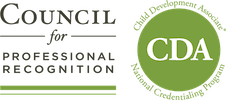One of the primary competencies that early-childhood educators develop when they earn a Child Development Associate (CDA) credential is building strong relationships with children’s families — including families who don’t speak English at home.
While the term “dual-language learners” (DLL) often brings to mind children whose home language is Spanish, early-childhood education classrooms are increasingly filled with children who speak multiple languages — what a new report from the Migration Policy Institute refers to as “linguistically super diverse.”
With the percentage of children who come from non-English-speaking homes more than doubling over the past 30 years, now is a great time for early childhood educators to adapt best practices for working with DLLs in their workplace. The “The Language of the Classroom: Dual Language Learners in Head Start, Public Pre-K, and Private Preschool Programs”1 provides some timely recommendations for how to better support the learning of children from such diverse home environments.
Focusing on six exemplary early-childhood classrooms in Boston, the authors identify culturally appropriate teaching practices that guide how early educators interact with families and encourage children to continue developing literacy skills in their own home language as they also learn English. Here are a few highlights:
- Supporting DLLs starts outside of the classroom. When conducting home visits and registering children for the first time, the programs featured made sure they had a staff member who spoke the family’s language as part of the process. These bilingual or multilingual staff members would also conduct screening assessments.
- Take a transitional approach. When teachers and children speak the same language, teachers use the child’s home language throughout the day, in group settings such as morning meetings as well as in one-on-one interaction to support instruction. They also label items in the classroom in multiple languages and incorporate home languages into activities such as songs and greetings.
- Bridge language differences using multiple resources. When they do not speak the same languages as the children in their classrooms, educators can reach out for resources from other staff members and from the families themselves, asking for materials such as books, charts and a list of common words in the home language.
- Recognize bilingual skills as a strength. The teachers highlighted in the report also relied on the children’s expertise in their own home language instead of viewing it as a weakness to be corrected. This approach, supported by research, not only helps children feel more connected to the classroom, but also strengthens relationships with families.
Jan Betz, the director of quality initiatives at Action for Children in Columbus, Ohio, provides training for providers who work in some of these “superdiverse” classrooms. Somalia, Sudan, Morocco and Cambodia are just a few of the countries represented by the children in the programs where they work. It’s often a priority for parents, she says, and that their children learn English as soon as possible so they will do well once they enter kindergarten.
Even so, Colorín Colorado, an online resource for educators who work with English learners, also provides some strategies that CDAs can use to help young children make the transition from their home language to acquiring more English.
Emphasizing new vocabulary—and repeating these words often—is one helpful practice. Providing plenty of opportunities for DLLs to talk with adults and English-speaking peers is another. Read-alouds and commenting on what is happening in the classroom throughout the day also reinforces the language skills children are learning. Finally, the physical layout of the classroom and predictable routines can also support language development as children pick up the vocabulary they need for certain activities in the space or at specific times of the day.
It’s also important for program directors to hire educators or classroom assistants who speak children’s home languages to make classrooms as inclusive as possible. Some Head Start and Early Head Start programs are even providing CDA training programs for parents, which can increase the diversity of the early education workforce.
Preparing young children for kindergarten—where they may not encounter as much home language support—is a primary responsibility for early-childhood educators. New America provides some perspective on a policy is increasingly affecting young children when they enter school—kindergarten readiness assessments. Janie T. Carnock notes that these assessments often don’t take into consideration DLLs and only assess children in English. “The development of bilingual children looks fundamentally different than their monolingual peers given that DLLs’ knowledge and skills are spread across two languages,” she writes.
While a few states now offer Spanish versions of these assessments or allow accommodations, such as current, non-verbal responses, for DLLs, Carnock recommends that all states assess DLLs in their home language and dedicate funds for bilingual assessors and valid bilingual assessment instruments. CDAs can help young children prepare for kindergarten—and these assessments—by spending time on alphabet knowledge, matching sounds to letters through rhyming and songs, and giving children plenty of experiences with books and other print resources.
It’s also important to note that public schools are now preparing students for a global economy by increasingly recognizing the value of bilingualism and adding funds for dual language immersion programs. As that occurs, elementary teachers could potentially benefit by learning some of the strategies for DLLs that CDAs already use, such as building strong relationships with families, bringing home language materials into the classroom and encouraging children to use the language skills they are acquiring as much as possible. DLLs can thrive once they enter school and having early-childhood educators who know
1Baker, Megina and Mariela Páez. 2018. The Language of the Classroom: Dual Language Learners in Head Start, Public Pre-K, and Private Preschool Programs. Washington, DC: Migration Policy Institute.
